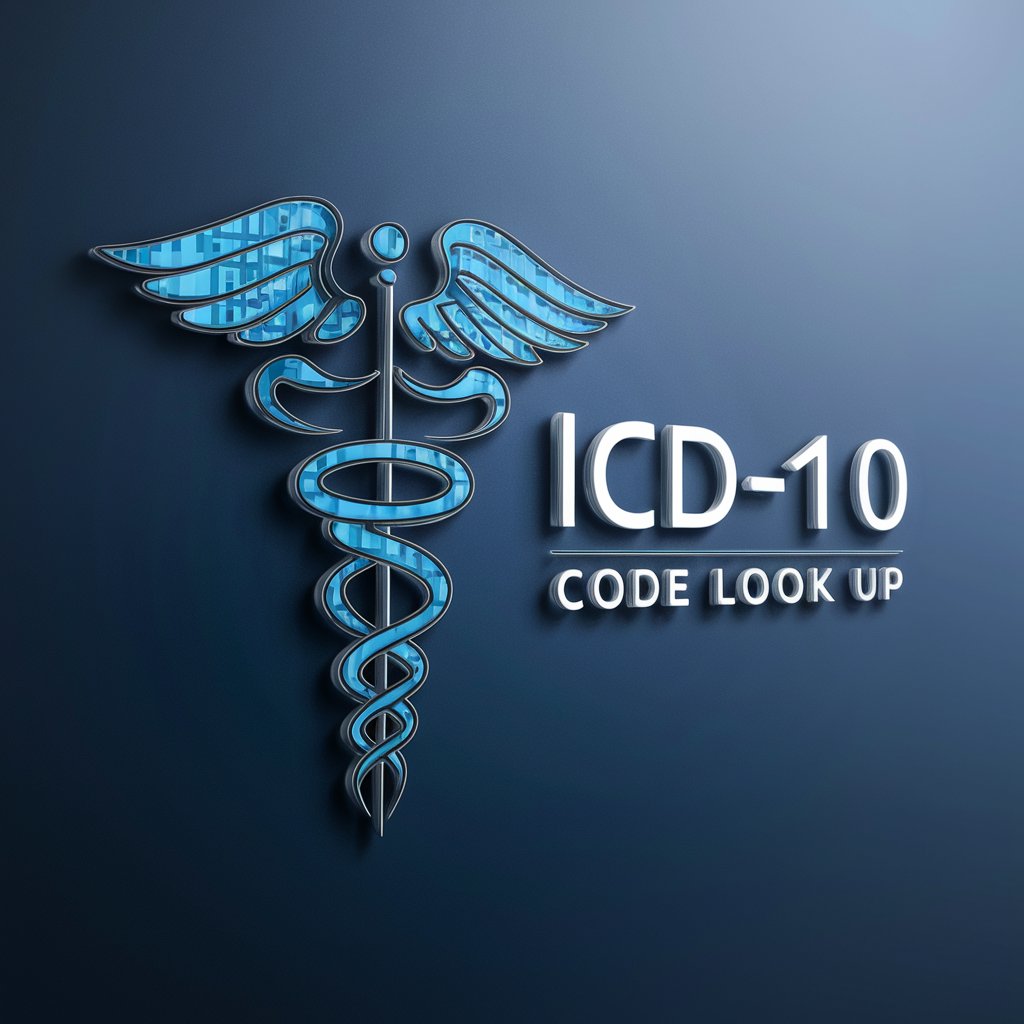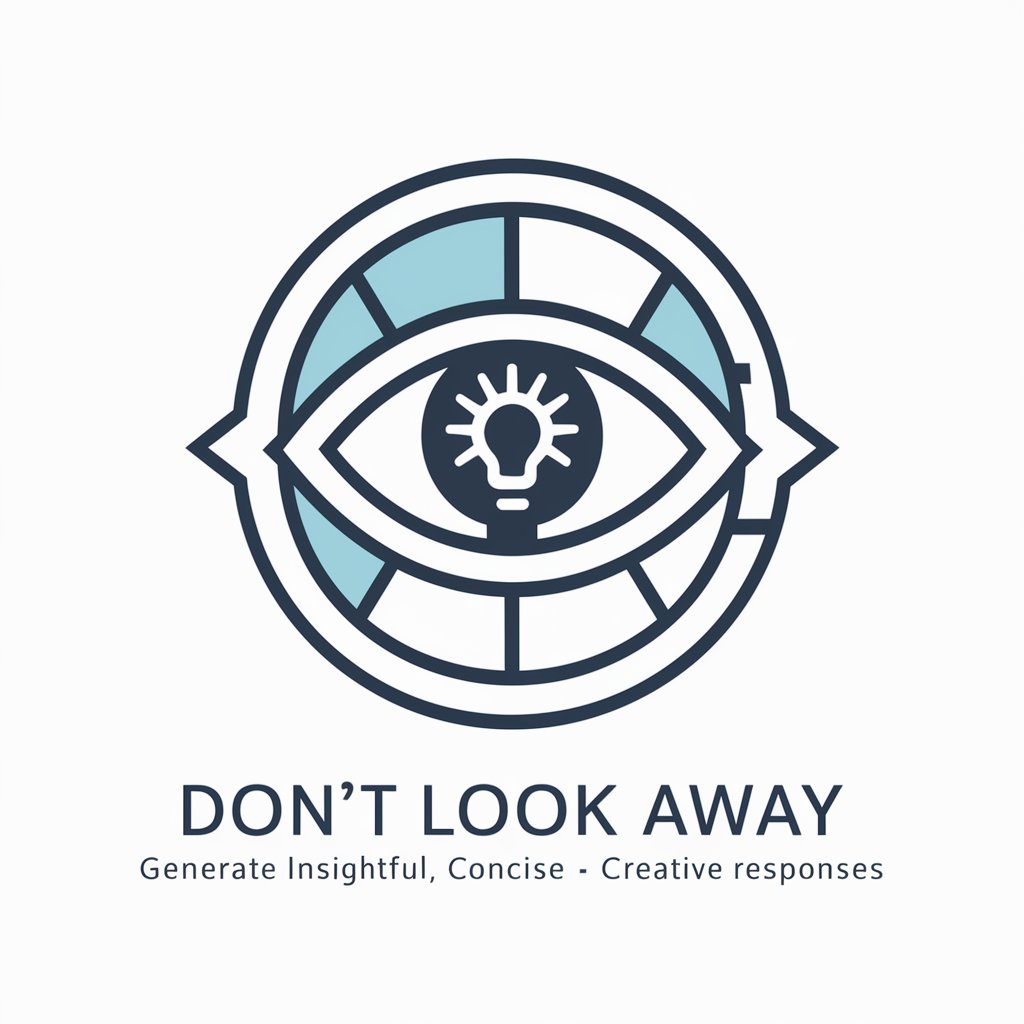ICD-10 Code look up - ICD-10 Code Lookup

Hello! Ready to find some ICD-10 codes?
Effortless ICD-10 coding with AI
Provide the ICD-10 code for the diagnosis:
List all ICD-10 codes related to the condition:
What are the ICD-10 codes for:
Find the ICD-10 code for the following diagnosis:
Get Embed Code
Introduction to ICD-10 Code Look Up
ICD-10 (International Classification of Diseases, Tenth Revision) Code look up is a specialized tool designed to help healthcare professionals, medical coders, and billing specialists quickly find the appropriate ICD-10 codes for diagnoses, symptoms, and procedures. This system is crucial for accurately documenting patient conditions in medical records, ensuring compliance with healthcare reporting standards, and facilitating the billing process. For example, if a patient is diagnosed with Type 2 Diabetes Mellitus, the tool would provide the specific ICD-10 code for that condition (E11). The design purpose of this tool is to streamline the process of coding and reduce errors in medical documentation, which is vital for patient care, research, and the financial aspects of healthcare. Powered by ChatGPT-4o。

Main Functions of ICD-10 Code Look Up
Precise Code Identification
Example
E11 for Type 2 Diabetes Mellitus
Scenario
When a healthcare provider diagnoses a patient with Type 2 Diabetes Mellitus, a medical coder would use the ICD-10 look up tool to find the precise code (E11) for billing and documentation.
Search by Symptoms or Diagnoses
Example
R51 for Headache
Scenario
If a patient presents with a headache, the tool allows the user to search by symptom, providing the code R51, which can be used for further medical documentation and billing.
Updates on Code Changes and Additions
Example
U07.1 for COVID-19
Scenario
With the emergence of COVID-19, the ICD-10 system was updated to include a specific code for the disease (U07.1). Users of the look up tool can stay informed about such updates, ensuring accurate reporting.
Ideal Users of ICD-10 Code Look Up Services
Healthcare Professionals
Doctors, nurses, and other clinicians benefit from using ICD-10 look up tools to ensure accurate and comprehensive documentation of patient diagnoses in medical records.
Medical Coders and Billers
These specialists use ICD-10 look up to find the correct codes for diagnoses and procedures to ensure accurate billing and reduce the risk of claim rejections or denials.
Healthcare Administrators
Administrators in healthcare facilities benefit from accurate and efficient coding to manage financial operations, compliance, and reporting requirements.
Medical Researchers
Researchers utilize ICD-10 codes to analyze trends, outcomes, and patterns in health conditions, making the tool invaluable for epidemiological studies and public health initiatives.

Guidelines for Using ICD-10 Code Lookup
Start Your Journey
Begin by accessing yeschat.ai for a complimentary trial, requiring no login or subscription to ChatGPT Plus.
Identify Your Need
Clearly define the medical condition or diagnosis for which you seek the ICD-10 code, to ensure accurate and relevant results.
Use Search Features
Utilize the search functionality by entering the condition, symptoms, or any related terms to find the corresponding ICD-10 codes.
Refine Your Search
Apply filters or use specific keywords to narrow down the results, if the initial search provides too broad a range of codes.
Review and Apply
Carefully review the codes and their descriptions to select the most appropriate one for your documentation or analysis.
Try other advanced and practical GPTs
AI Look
Styling you for every weather, effortlessly.

Simpsonize My Look AI
Turn Anyone into a Simpsons Character

You Look Marvelous
Elevate Your Day with AI Compliments

Look Up History
Explore History with AI

Don't Look Away meaning?
Explore, Understand, Engage - AI-Powered

Operating System solver
Master Operating Systems with AI

Piano Migration Tutor
AI-Powered IT Migration Mastery

Punch Line
Crafting Humor with AI Power

ALMOSTGODHIMSELF
Enhancing Insights with AI Power

Trendy Nelly
Master Trends with AI Insight

GPTerson: Bible Scholar
Enlightening Scripture with AI

GPTerson: Meaningful
Empower your thoughts with AI wisdom.

ICD-10 Code Lookup Q&A
What is ICD-10 Code Lookup?
ICD-10 Code Lookup is a tool designed to help users find International Classification of Diseases, Tenth Revision (ICD-10) codes based on conditions, symptoms, or diagnosis names. It supports healthcare professionals, coders, and researchers in identifying correct codes for documentation and analysis.
Can I find codes for rare diseases using this tool?
Yes, the tool is comprehensive and includes codes for a wide range of conditions, including rare diseases. By entering specific symptoms or the name of the disease, users can locate the relevant ICD-10 codes.
Is there a way to verify the accuracy of the codes provided?
While the tool provides accurate and up-to-date ICD-10 codes, users are encouraged to cross-reference the codes with official medical coding resources or consult with a professional coder for verification, ensuring the codes' applicability and accuracy for their specific needs.
Can I use this tool for academic research?
Absolutely. Academic researchers can use the ICD-10 Code Lookup to identify appropriate codes for diseases and conditions related to their research projects, facilitating accurate data analysis and reporting.
Does the tool provide explanations for the codes?
Yes, the tool not only lists the ICD-10 codes but also provides detailed descriptions for each code. This feature helps users understand the conditions associated with each code, ensuring they select the most relevant one for their needs.
